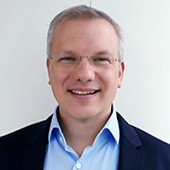Oct 21
2022
What Medical practitioners and Nurses Say They Want For An Productive Digital Transformation of Healthcare

By Jan Herzhoff, president, Elsevier Well being Global Marketplaces.
The figures will make your coronary heart sink. Physicians and nurses are feeling undervalued and burned out, dealing with noted and anticipated workforce shortages at the frontlines, all while dealing with the continued impression of the pandemic. It is been discovered that 47% of U.S. healthcare staff system to leave their positions by 2025, with 74% of clinicians globally predicting there will be a shortage of nurses and 68% predicting a lack of medical professionals in 10 many years.
Through international in-depth investigate of approximately 3,000 medical doctors and nurses from 111 international locations, we questioned healthcare pros to contemplate the penalties of the pandemic and offer insights on the problems and possibilities they hope to experience in excess of the up coming decade – a lot of owning to do with new and rising systems.
The outcome is Elsevier Health’s Clinician of the Upcoming report, in which we explored the worldwide traits and variations recognized in the study, that will effects the long run of healthcare and its electronic transformation. By listening to the voices of nurses and medical doctors by themselves, and knowledge the troubles they are experiencing, we will assist forge a much better path ahead.
Nowadays, technology performs a very important purpose in transforming healthcare. In point, in accordance to the Clinician of the Foreseeable future report, 88% of clinicians globally concur that currently being technologically savvy is far more critical in their daily role these days than it was a ten years ago.
Seeking forward 10 decades, clinicians imagine obtaining “technology literacy” will be their most precious tool, ranking even higher than “clinical expertise.” Having said that, clinicians are still acutely knowledgeable of the implications that could result from the latest rapid evolution of digital health care. Findings from the report emphasize that 69% of the global workforce is involved the prevalent use of electronic health technologies will come to be one more burden.
Despite these problems, clinicians continue to see the probable of technology to support provide ideal client results. These insights offer a roadmap for adjust and position to crucial trending areas of focus though on our route towards an effective digital transformation of healthcare.
Creating Info Work for Clinicians and Individuals:
Information is exploding throughout each and every sector in the world, with the healthcare field producing 30% of the world’s info volume. Industry experts at International Knowledge Corp (IDC) predict that by 2025 the health care field will be the swiftest-expanding resource of information around the globe.
As the increase in digital wellbeing resources adds to the abundance of info, clinicians are battling with how to use the facts in impactful techniques. Results from the report display that clinicians believe that they will need a lot more time to understand how to use all this facts, with 83% of physicians and nurses worldwide indicating their teaching ought to be overhauled to maintain tempo with technological improvements.
Even more, added reports and reports take note frustrations with electronic healthcare documents (EMRs) and how technology is leading to emotional exhaustion, thanks to challenging-to-use interfaces that build hindrances to clinicians. Obviously, there’s friction, and initiatives really should be centered on producing data that is actionable at scale for clinicians, corporations, and clients.
By lessening fragmentation, functioning harder to bridge data silos, boosting information sharing and connectivity, and scaling information to help affected individual care and procedure conclusions, we can make knowledge perform for the healthcare program. We have to also widen our lens on the sorts of knowledge we streamline: population-stage details, tiny knowledge that can be pooled, research data from medical trials, and well being and life-style data from health apps.
Empathy and Equity in the Digital Ecosystem:
Even with many valuing digital health and fitness, details from the Clinician of the Future report exhibits that 64% of clinicians stress new technologies will exacerbate health and fitness inequalities. Even though stories on the impression of utilizing electronic technologies to boost life in low and middle-earnings locations and populations keep on to mount, there is place to superior integrate burgeoning systems and health equity. The healthcare business must not only assist training endeavours and infrastructure for clinicians but also individuals.
Many feel empathy and the skill to recognize and share the thoughts of yet another is the foundation for equality and is vital to develop believe in involving clinicians and individuals. On the other hand, 58% of clinicians think telehealth will negatively impact their potential to reveal empathy with individuals, in spite of the claimed expanding relevance of these smooth abilities in the final decade. It is important that we examine options to integrate well being fairness considerations into the enhancement of new technologies and contemplate equity at the outset of solution improvement.
Just as healthcare employees who encounter illness become far more empathetic to their unwell clients, we have to have to present clinicians with tools that help them expertise, recognize and immerse on their own in the truth of client experiences. Simulation systems, for example, empower nurses in schooling to emotionally knowledge true-daily life individual scenarios that embody numerous individuals.
Producing digital people that characterize a range of backgrounds and cultures – placing by themselves in the sneakers of a transgender or Indigenous American individual, for illustration – makes it possible for learners to practice discussion skills and empathy in the direction of that patient inhabitants, as properly as therapeutic conversation. This will go a extended way in creating positive engineering use encourages the numerous criteria of client demands.
Engineering To Empower Clinical Choices and Client-Centric Care:
More than half of the 3,000 clinicians surveyed forecast they will make most of their clinical choices using applications with artificial intelligence. That very same number expects actual-time individual analytics to be essential to personalised treatment.
Nonetheless, with numerous predicting the widespread use of digital health and fitness systems will grow to be a additional tough burden and 58% of U.S. physicians anticipating most long run consultations to be distant, we will need to be certain we support this transfer to a digital-first tactic with the appropriate units and infrastructure to empower the long term tech-savvy clinician.
If technologies are created with clinicians and patients in thoughts, perfectly-integrated, and supported by enough education, we will be able to enjoy the tremendous opportunity technological innovation can provide for healthcare suppliers.
A Digital-first Future Constructed on Want and Belief:
The final decade has shown us the priceless impression technological know-how can have on nurses, doctors, clients, and our healthcare system. This has been performed by fostering higher transparency and trust in the clinician-affected person connection, furnishing clinicians with credible and reputable information, and giving individuals greater ownership of their knowledge.
As we continue to transfer ahead in a tech-1st era, we must continue being concentrated on listening and acting on what our frontline healthcare staff are telling us they want. We ought to start off to tackle now the health demands of tomorrow, to push a genuinely powerful digital transformation of healthcare.





/assets/images/provider/photos/2672875.jpg)
More Stories
Censorship and Health Propaganda: The Hidden Dangers
Can You Trust Government Health Agencies Anymore?
Eating Disorders Information Every Family Should Read